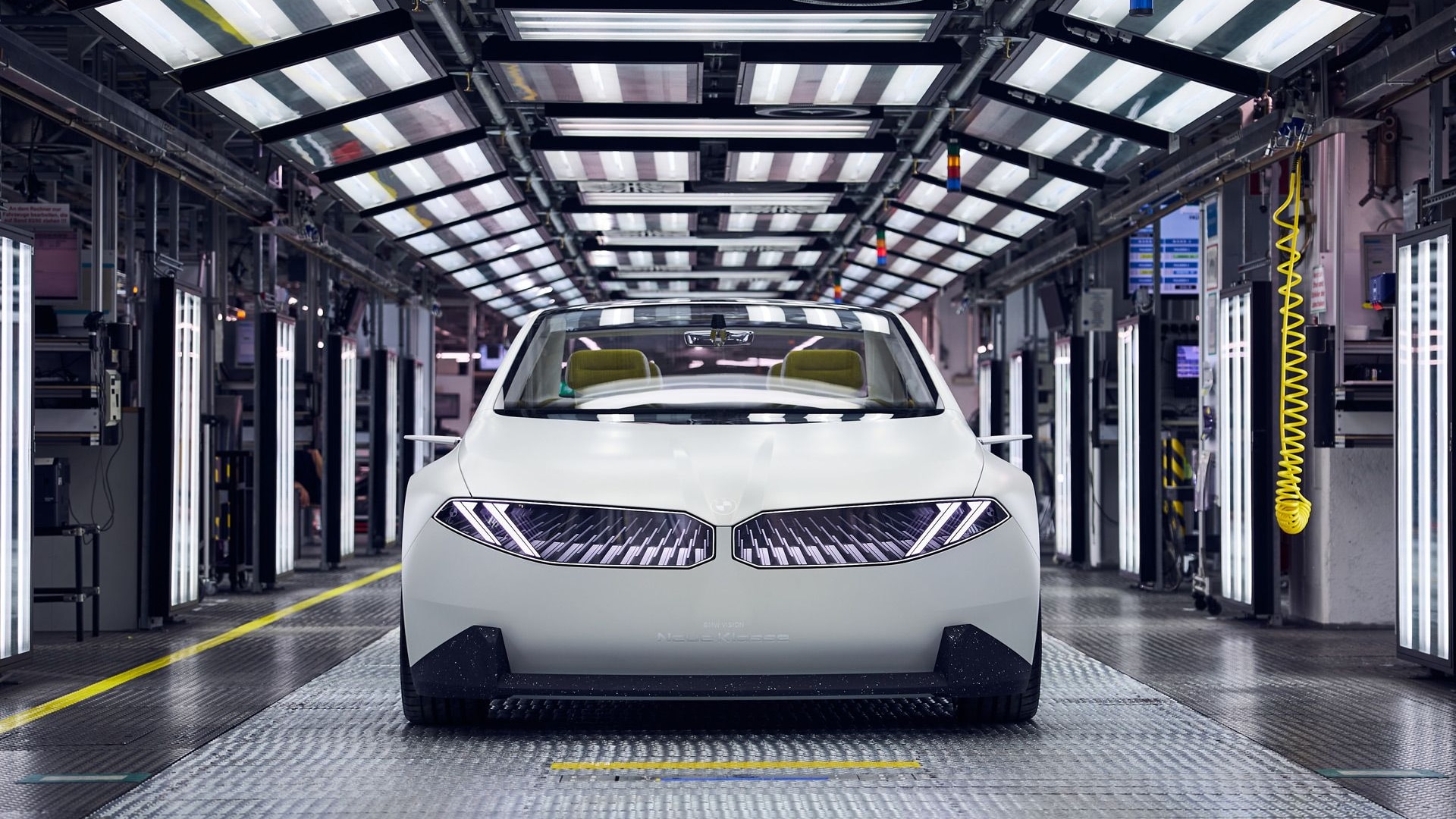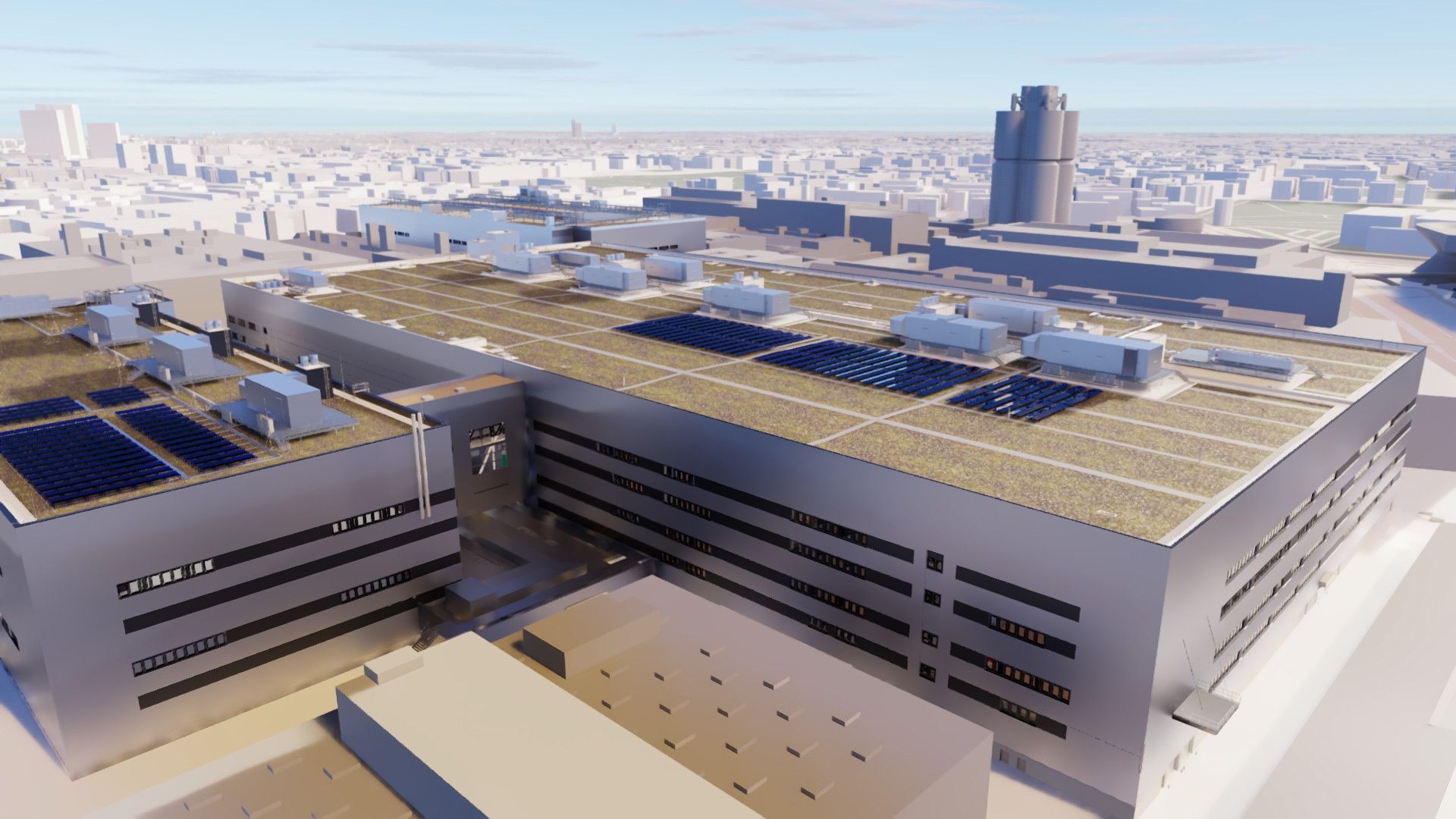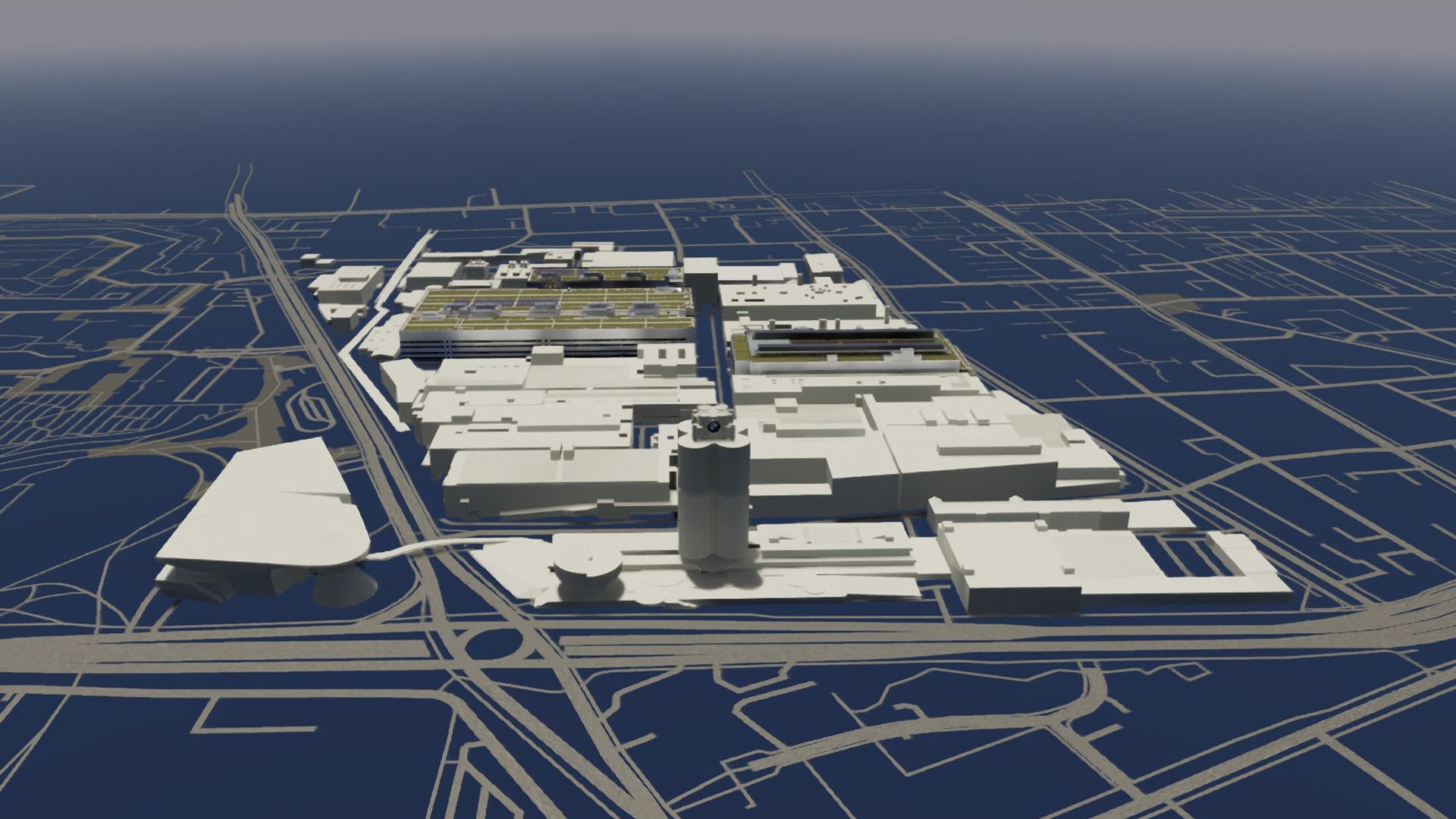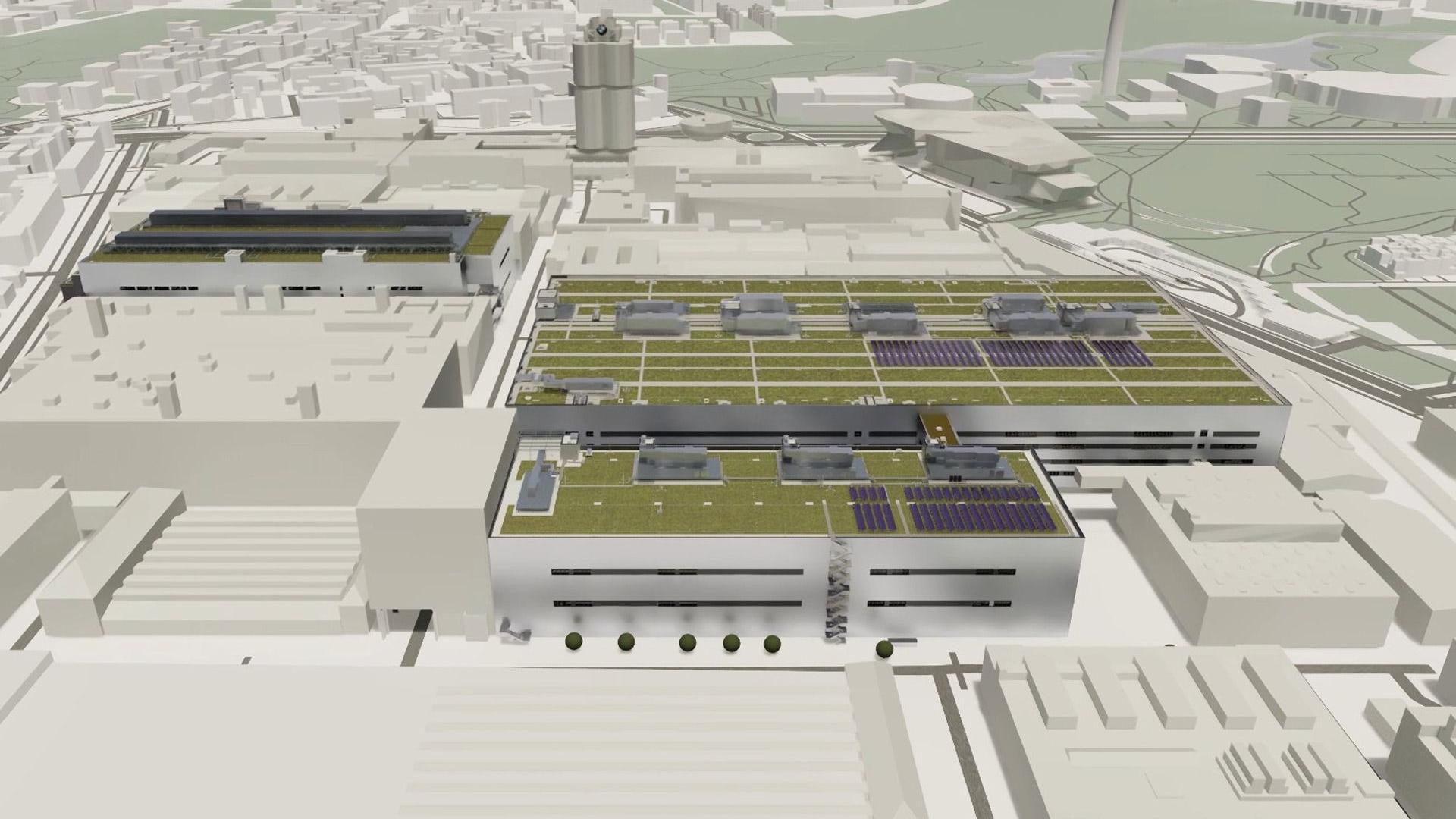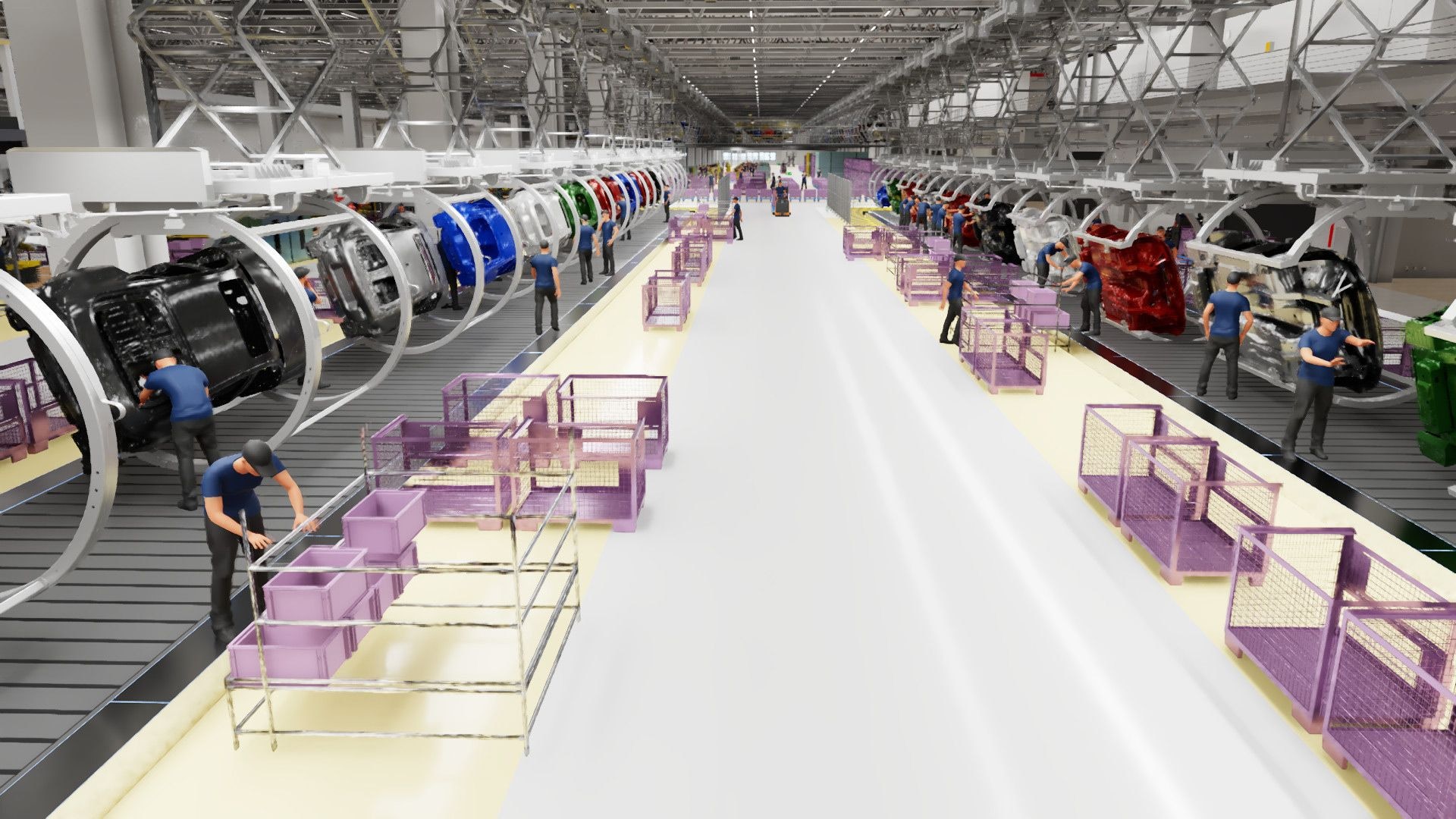BMW's historic plant in Munich, Germany, will transition to building electric vehicles at the end of 2027, the automaker announced on Wednesday.
The plant, which is adjacent to BMW's global headquarters, dates back to 1922, when BMW built aircraft engines. It has been churning out cars since 1952, starting with the BMW 501.
BMW has earmarked 650 million euros (approximately $714 million) to transform the plant for volume EV production, including expanding the site with an additional assembly area and a new body shop.
To free up space, engine production was moved last year to sites in Austria and the U.K. It means BMW no longer builds any engines in Germany.
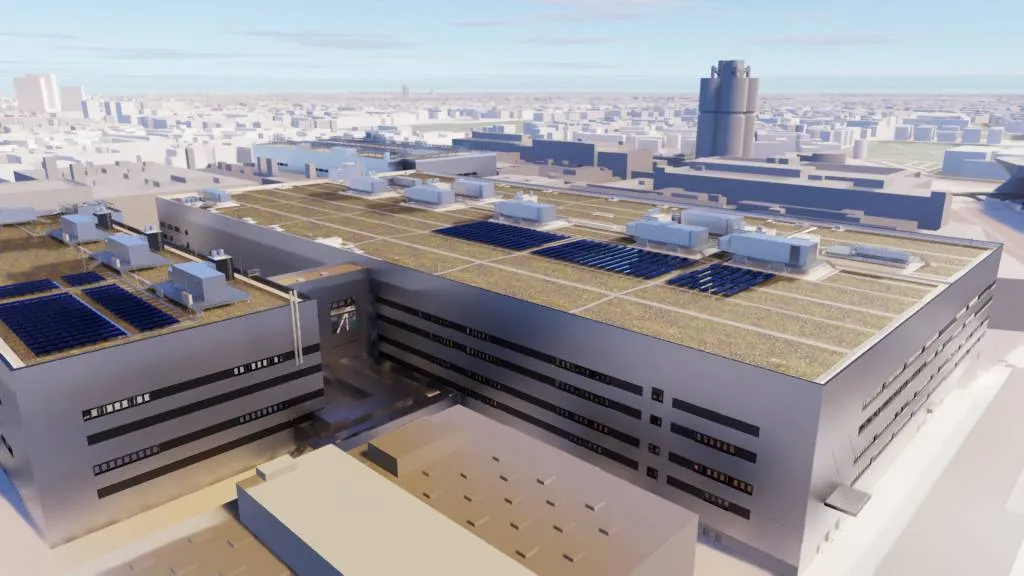
Artist's impression of upgraded BMW plant in Munich, Germany
The Munich plant is currently responsible for the 3-Series and 4-Series lines, and will build the last combustion versions in late 2027. Roughly 1,000 cars are assembled at the site per day. In 2026, the plant will start production of a Neue Klasse EV, a sedan thought to be a member of the next-generation 3-Series family.
The first Neue Klasse EV will enter production in 2025 at a new plant in Debrecen, Hungary. Neue Klasse EVs are also scheduled to be built at plants in China and North America this decade.
Neue Klasse, German for “New Class,” is a code-name for the next generation of BMW EVs that will use a newly developed platform. The vehicles will also introduce new design themes for the exterior and cabins of BMW vehicles, which were previewed last year on the Vision Neue Klasse concept. BMW CEO Oliver Zipse said at the reveal that the concept is a close representation of the upcoming Neue Klasse sedan.
The sedan will be followed closely by an SUV, a prototype for which has been spotted. The SUV will likely be a member of the next-generation X3 family. The sedan and SUV will be followed in quick succession by four more Neue Klasse EVs, likely to be additional body styles rather distinct model lines.
